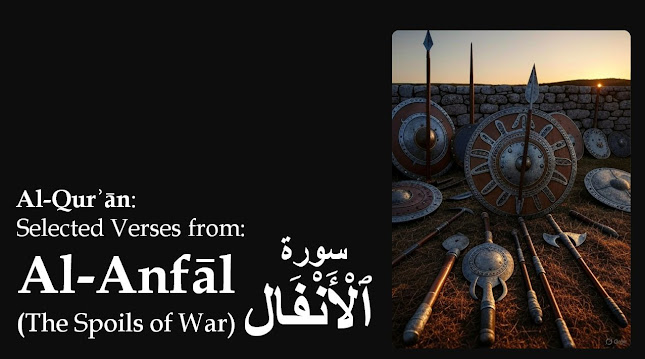As the Arabic word (sabr) which has been translated into fortitude is very comprehensive in meaning, 'practice fortitude' implies: "Keep your feelings and passions under control; avoid rashness, bewilderment, despair, and greediness: keep cool and calm and make considered decisions; remain firm and steadfast in the face of dangers and difficulties; don't take any wrong step even under the greatest provocations; don't lose your senses even when you are attacked by afflictions and are in a sad plight; don't take any hasty action in your impatience to achieve your objective without delay with the help of some seeming effective device and don't be enticed by the temptation of some worldly interest or gain or lust" . Allah helps those who practice fortitude (sabr) in accordance with the above implications.
Tafsir Ibn-Kathir: (The Command for Endurance when the Enemy Engaging)
Allah commands endurance upon meeting the enemy in battle and ordains patience while fighting them. Muslims are not allowed to run or shy away, or show cowardice in battle. They are commanded to remember Allah while in that condition and never neglect His remembrance. They should rather invoke Him for support, trust in Him and seek victory over their enemies from Him. They are required to obey Allah and His Messenger in such circumstances adhering to what He commanded them, and abstaining from what He forbade them. They are required to avoid disputing with each other, for this might lead to their defeat and failure,
(Lest your strength departs), so that your strength, endurance and courage do not depart from you,
(And be patient. Surely, Allah is with the patients.)
In their courage, and obedience to Allah and His Messenger, the Companions reached a level never seen before by any nation or generation before them, or any nation that will ever come. Through the blessing of the Messenger and their obedience to what he commanded, the Companions were able to open the hearts, as well as, the various eastern and western parts of the world in a rather short time. This occurred even though they were few, compared to the armies of the various nations at that time. For example, the Romans, Persians, Turks, Slavs, Berbers, Ethiopians, Sudanese tribes, the Copts and the rest of the Children of Adam. They defeated all of these nations, until Allah's Word became the highest and His religion became dominant above all religions. The Islamic state spread over the eastern and western parts of the world in less than thirty years. May Allah grant them His pleasure, as well as, be pleased with them all, and may He gather us among them, for He is the Most Generous, and Giving.
Muhammad Asad Explanation:
The relevant word is rih, which literally signifies "wind"; it is used metaphorically to denote "spirit" or "moral strength".
Yusuf Ali Explanation:
A fine description of the Muslim virtues which make for success and whose loss brings about humiliation and failure. "Power": literally, "wind", -the favourable wind for a sailing ship.
Javed Ahmad Ghamidi Explanation:
A special meaning of obeying God and His Messenger is also understood here that while combating the enemy full discipline is shown in following the directives of God and His Messenger. This is because just as lack of God’s remembrance causes disruption in the mind and heart of a person, lack of discipline disturbs the order and system of a group.
(..Remain steadfast because God is with those who are steadfast) This statement was given earlier with relation to individuals. Here it has been given with relation to collectivities. Imām Amīn Aḥsan Iṣlāḥī writes:
... The implication is that if they want God’s help and close association, they should prove themselves worthy by their collective character. God does not help an ill-disciplined mob. He helps those who fight for His cause in a united and orderly way. (Amīn Aḥsan Iṣlāḥī, Tadabbur-i Qur’ān, vol. 3, 488)
Tafsir Qur'an Wiki:
Obedience to God and His Messenger ensures that the believers go into the battle submitting themselves totally to God. There will be no room for any cause of conflict or dispute: “Do not dispute with one another, lest you lose heart and your moral strength.” People fall into dispute when they have different authorities which they look to for leadership and guidance, or when desire is the ultimate factor that shapes people’s views and ideas. When people obey only God and His Messenger, the main cause of dispute between them disappears, no matter how much their views differ over the question under discussion. Having different views is never a cause of dispute and conflict.
What causes conflict is desire, making everyone insist that his view is the one to follow, even when it appears to be wrong. Desire causes ‘self’ to be placed in opposition to ‘right’ and attaching more importance to self in the first place. For this reason, Muslims are given this directive to obey God and His Messenger at the time of battle. It is a question of discipline that is essential in battle. It is an obedience to the High Command which reflects itself in a genuine obedience to the leader in command of the Muslim forces. Steadfastness and patience in adversity are also essential, whether internal within oneself, or on the battlefield: “Be patient, for God is with those who are patient.” Being with God will certainly ensure success and victory for those who are steadfast.



-46.jpg)



















